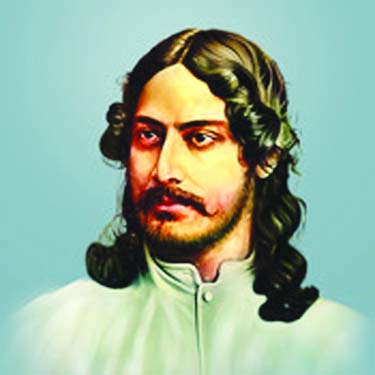
BSS, Dhaka :
The nation is set to observe the 77th death anniversary of Rabindranath Tagore on Monday with elaborate programmes recalling the great poet who did not leave any human emotion untouched in his works, especially poems and songs.
As part of the national level observance, Bangla
Academy will hold a solo lecture and a cultural function at Abdul Karim Sahitya Bisharad auditorium on the academy premises at 4pm on Monday.
Besides, Shilpakala Academy, Shishu Academy and different government and non-government institutions and cultural organisations have drawn up various programmes marking the day.
The youngest of thirteen surviving children, Tagore, nicknamed “Rabi”, was born on 25th of Bengali month of Baishakh 1268 (May 7, 1861) in the Jorasanko mansion in Calcutta to Debendranath Tagore and Sarada Devi.
In his long seven decades of endeavors in different genres of Bangla literature, the great poet enriched the Bangla language and literature and elevated their positions in the global arena.
His novels, short stories, songs, dance-dramas and essays spoke to political and personal topics.
Gitanjali (Song Offerings), Gora (Fair-Faced) and Ghare-Baire (The Home and the World) are his best-known works and his verse- short stories, and novels-were acclaimed-or panned-for their lyricism, colloquialism, naturalism, and unnatural contemplation.
Author of Gitanjali and its “profoundly sensitive, fresh and beautiful verse”, Rabindranath became the first non-European to win the Nobel Prize in Literature in 1913.
Sometimes referred to as “the Bard of Bengal”, Tagore’s poetic songs were viewed as spiritual and mercurial.
His compositions were chosen by two nations as national anthems:
Bangladesh’s Amar Shonar Bangla and India’s Jana Gana Mana. The Sri Lankan national anthem was inspired by his work.
The nation is set to observe the 77th death anniversary of Rabindranath Tagore on Monday with elaborate programmes recalling the great poet who did not leave any human emotion untouched in his works, especially poems and songs.
As part of the national level observance, Bangla
Academy will hold a solo lecture and a cultural function at Abdul Karim Sahitya Bisharad auditorium on the academy premises at 4pm on Monday.
Besides, Shilpakala Academy, Shishu Academy and different government and non-government institutions and cultural organisations have drawn up various programmes marking the day.
The youngest of thirteen surviving children, Tagore, nicknamed “Rabi”, was born on 25th of Bengali month of Baishakh 1268 (May 7, 1861) in the Jorasanko mansion in Calcutta to Debendranath Tagore and Sarada Devi.
In his long seven decades of endeavors in different genres of Bangla literature, the great poet enriched the Bangla language and literature and elevated their positions in the global arena.
His novels, short stories, songs, dance-dramas and essays spoke to political and personal topics.
Gitanjali (Song Offerings), Gora (Fair-Faced) and Ghare-Baire (The Home and the World) are his best-known works and his verse- short stories, and novels-were acclaimed-or panned-for their lyricism, colloquialism, naturalism, and unnatural contemplation.
Author of Gitanjali and its “profoundly sensitive, fresh and beautiful verse”, Rabindranath became the first non-European to win the Nobel Prize in Literature in 1913.
Sometimes referred to as “the Bard of Bengal”, Tagore’s poetic songs were viewed as spiritual and mercurial.
His compositions were chosen by two nations as national anthems:
Bangladesh’s Amar Shonar Bangla and India’s Jana Gana Mana. The Sri Lankan national anthem was inspired by his work.

